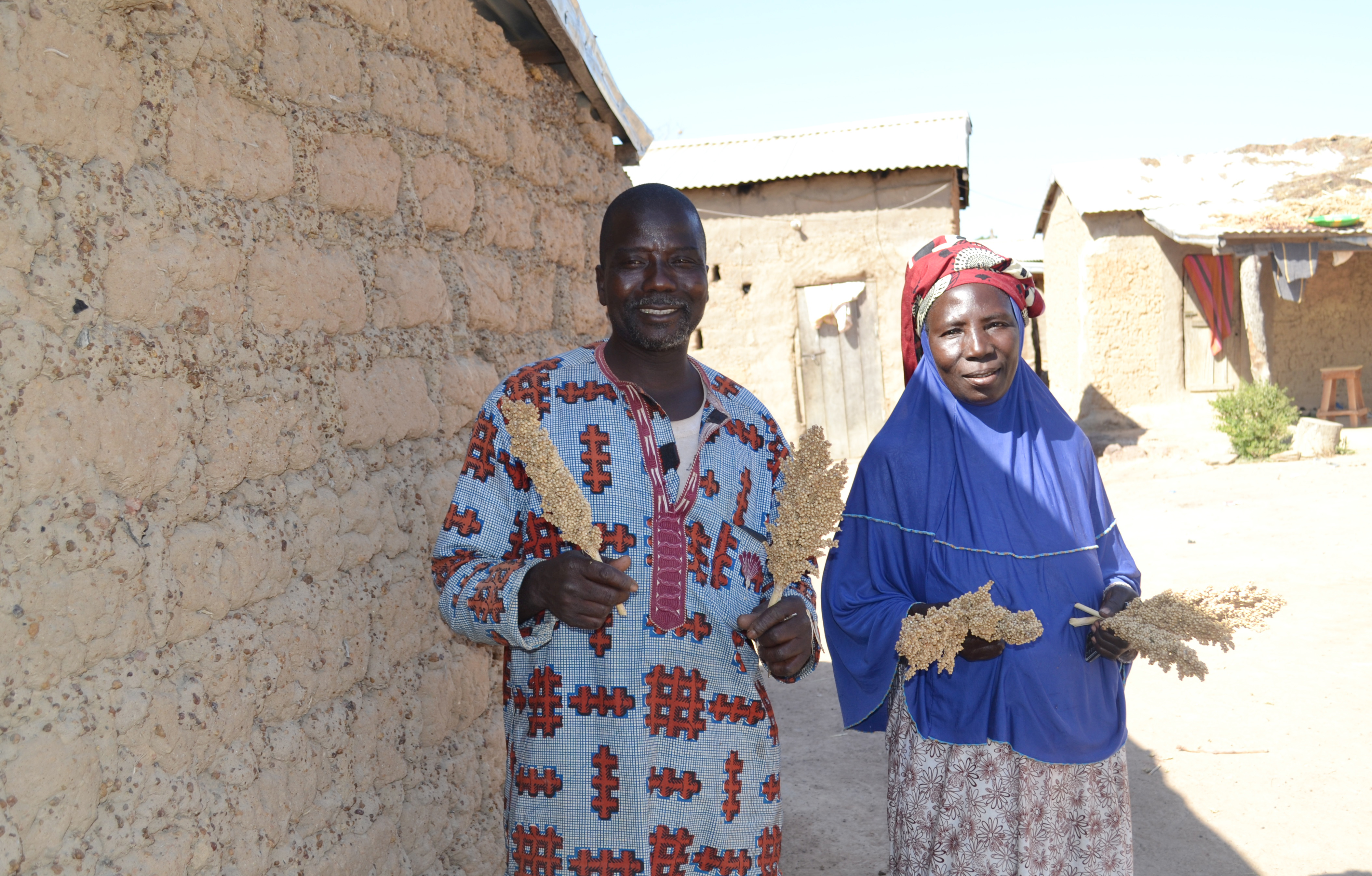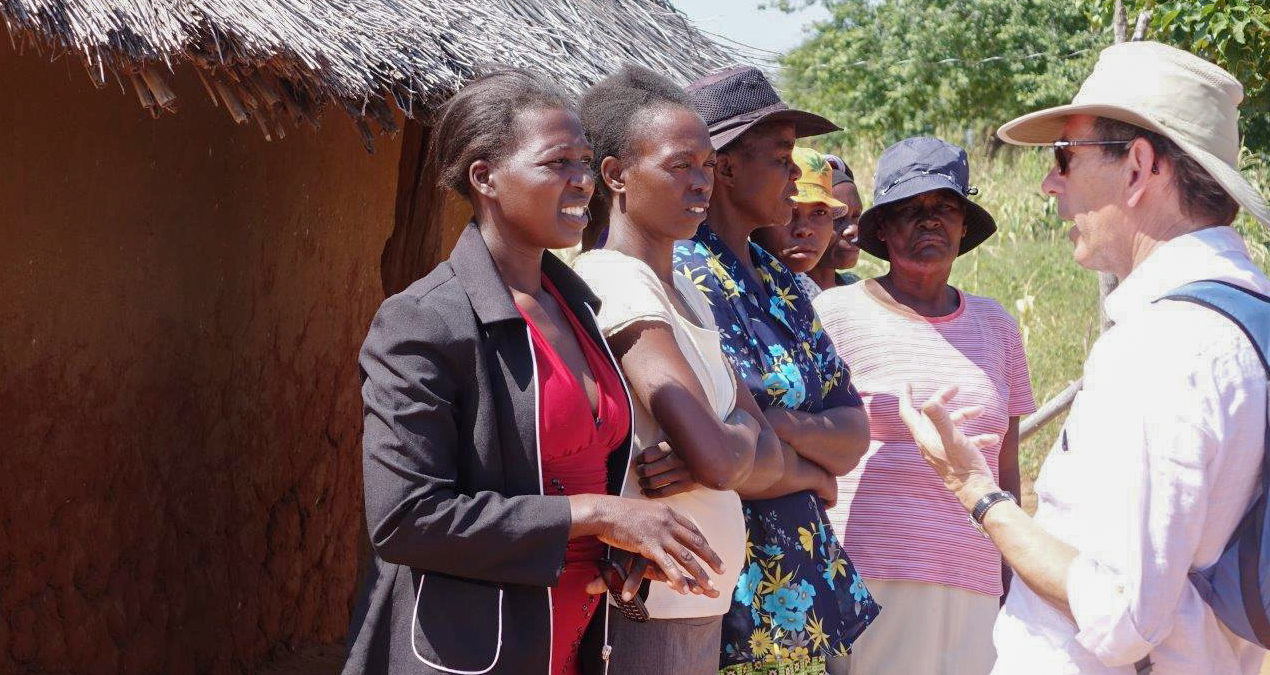Zimbabwe's agricultural sector encounters notable challenges, as underscored by the 2022 Zimbabwe Vulnerability Assessment (ZIMVAC) report. According to the report, an estimated 3.8 million rural individuals are projected to face food insecurity during the peak of the country's 2022/23 lean season. This situation is a result of multiple livelihood shocks, including drought, intra-seasonal dry spells, floods, water logging, crop and livestock diseases, and the lingering effects of the COVID-19 pandemic. These factors have significantly diminished the coping capacity of vulnerable households, leading to heightened food insecurity nationwide.
Drought, particularly, poses a substantial threat to Zimbabwe's agriculture, given its heavy reliance on rainfed practices. Insufficient rainfall results in water shortages, leading to diminished agricultural production and exacerbating food insecurity among communities heavily reliant on farming for sustenance.

In response to these challenges, the Zimbabwe National Agriculture Policy Framework (NAPF) has been developed to address critical concerns and facilitate sustainable transformation within the agricultural sector. The framework identifies key priorities, including ensuring food security and nutrition, advancing agricultural knowledge, technology, and innovation systems, improving access to agricultural inputs, developing essential infrastructure, fostering efficient marketing and trade mechanisms, and facilitating the supply of agricultural finance and credit.
Moreover, the NAPF underscores the importance of access to land, tenure security, and effective land administration in supporting farming activities. By addressing land-related issues, the policy aims to promote inclusivity and equitable distribution of agricultural resources.
Sustainable agriculture takes center stage within the NAPF, recognizing the importance of adopting environmentally friendly practices that enhance ecosystem resilience and reduce vulnerability to climate change and other external shocks. The implementation of sustainable farming methods can contribute to the long-term viability of the agricultural sector and mitigate the impact of future challenges.
To overcome food insecurity and steer the sustainable transformation of the agricultural sector, collaborative efforts are essential from various stakeholders, including the government, international organizations, development partners, and local communities. By prioritizing and aligning strategies with the goals outlined in the NAPF, Zimbabwe can work towards enhancing agricultural productivity, improving livelihoods, and achieving food security and nutrition for its citizens.
The Southern African Development Community (SADC) / ICRISAT Sorghum and Millet Improvement Program (SMIP) was launched in direct response to a recommendation made by the SADC Heads of State. This significant initiative led to the establishment of ICRISAT Zimbabwe in 1983, with its research station located at Matapos in Bulawayo. In close alignment with Zimbabwean national strategic plans, ICRISAT's work in the country is dedicated to enhancing agricultural productivity, eradicating hunger and food insecurity, improving nutrition, and fostering sustainable agriculture to transform the agricultural sector, which is predominantly driven by smallholder farmers. Through its efforts, ICRISAT actively contributes to food and nutrition security by addressing micronutrient malnutrition through crop improvement for sorghum, millet, and groundnut. Additionally, the organization conducts rigorous testing of crop varieties for release, explores value-added products, and promotes nutritional awareness among farmers and partners by creating recipes from ICRISAT's mandate crops.
In past endeavors, the implementation of smart water management tools and the establishment of Agriculture Innovation Platforms (AIPs) in 13 communal irrigation schemes across Zimbabwe yielded remarkable results. This initiative significantly reduced irrigation frequency, resulting in improved water productivity, increased nutrient retention, and a remarkable surge in crop yields and a rise in income for farmers. Furthermore, by advocating the conservation agriculture approach, which emphasizes efficient use of inputs like water, fertilizer, and seed, ICRISAT has succeeded in elevating average cereal yields by 50-200% in over 150,000 households in the past 15 years.

ICRISAT's commitment to enhancing agricultural systems extends to strengthening linkages between farmers and markets, particularly in the goat value chain, thus bolstering integrated crop-livestock systems in Zimbabwe. Moreover, the organization's strong collaboration with the Government of Zimbabwe is exemplified by its participation in a consortium focused on increasing the productivity of sorghum and millets. As part of this collaborative effort, ICRISAT actively engages with the Crop Breeding Institute (CBI) to expedite trials and release hybrids and collaborates with the private sector to develop a robust seed system for these hybrids.
In its unwavering pursuit of the Sustainable Development Goals (SDGs), ICRISAT leverages its vast experience in promoting improved varieties for food, feed, and fodder, ensuring greater food safety through mycotoxin control, and successfully scaling up climate-smart technologies to revolutionize agricultural production and food systems in Zimbabwe. With a comprehensive approach encompassing research, innovation, partnerships, and capacity building, ICRISAT remains steadfast in its mission to empower farmers and communities and foster a resilient and prosperous agricultural landscape in Zimbabwe.
or scan the QR 
Sorghum
Pearl Millet
Chickpea
Groundnut

ICRISAT - Zimbabwe
Bulawayo
Phone: +263 383 311 to 15
Fax: +263 383 307
Email: icrisat-zwe@cgiar.org
Address: Matopos Research Station, PO Box 776, Bulawayo, Zimbabwe
30 Jan 2026